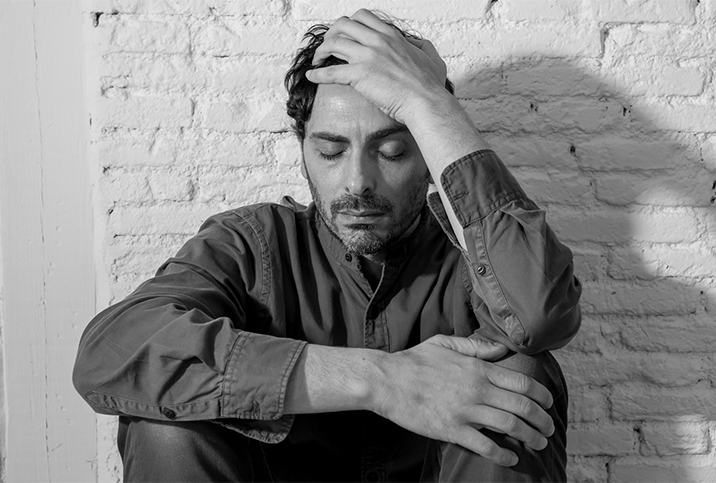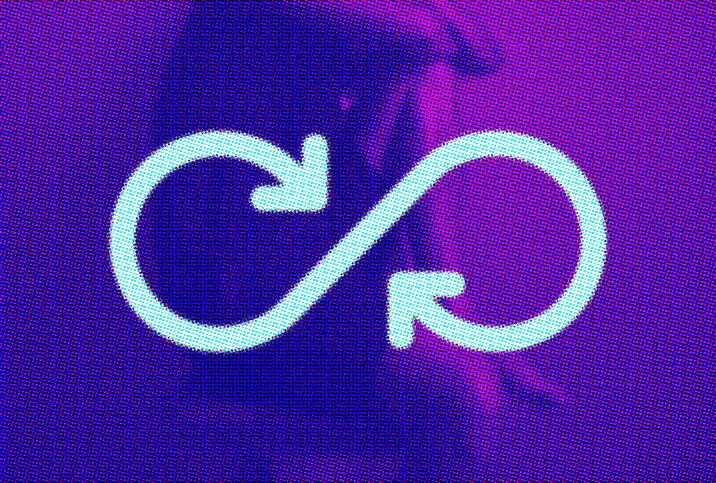Depression & Anxiety: Myths & Misconceptions

We've all had a bad day at the office and moaned, "I'm depressed." Or waited anxiously for good news about a loved one recently admitted to the hospital. But these are bumps in the road compared to the mountains of clinical depression and anxiety disorders.
The Anxiety and Depression Association of America (ADAA) estimates that more than 18 percent of the U.S. population over 18 years old—as many as 40 million people—suffer from anxiety disorders.
Likewise, depression—a chronic medical condition that can negatively impact every aspect of life—affects as much as 10 percent of the population. The National Institute of Mental Health indicated that around 17.3 million adults in the U.S. experienced at least one major episode of depression in 2017.
Depression
Many myths and misconceptions surround depression, the most common stand-alone psychological disorder in the United States, and that can affect how they get treatment and how they’re treated by people who don’t understand their issues. Let’s take a look.
Myth: Depression is just in my head.
Reality: One of the most common and problematic myths about depression is that it’s not a real medical problem, but rather, something fabricated, something that's just in a person’s head.
The science is clear: Depression is a discrete medical illness with clear diagnostic criteria that is caused by a combination of genetic, chemical, environmental and situational factors. Depression affects 6.7 percent of American adults, and it’s very real.
Myth: I can just get over depression.
Reality: Like other illnesses, depression is not something you can simply decide to get over, even in mild cases. While there are certain activities and lifestyle choices that can help, you can’t wish it away.
Dealing with depression is a journey, and usually involves a combination of medications and other treatments, including therapy. Even if someone with depression appears to be functioning normally, that often doesn’t mean they are "cured."
Myth: Depression is mostly a 'female thing.'
Reality: While it’s true that women experience depression at higher rates than men (about 1.5 to 3 times as high), men do get depression. The condition frequently manifests itself in different ways, but in general, women are more likely to express typical or recognizable symptoms and are more likely than men to display those symptoms.
Men tend to experience symptoms of fatigue and irritability or outbursts; loss of interest in work, family or hobbies; substance use/abuse; risk-taking; escapism (engaging in activities for hours on end) and difficulty sleeping. Additionally, men are less likely to talk about their emotions or show you what’s going on with them, which often means men are getting underdiagnosed for this condition.
Myth: Having depression means I'm weak.
Reality: Showing up and living your life despite struggles with mental illness is one of the best examples of mental strength.
The idea that mental illness is a sign or a result of weakness, or that a mentally strong person can't get depression, is discriminatory and an example of how physical and mental illnesses are not treated the same.
While the fight against the stigma of mental illness is still being fought, strides have been made. Some of the most successful people in history—Abraham Lincoln, Oscar-winning actress Patty Duke, Beethoven, author Virginia Woolf, NFL quarterback Terry Bradshaw, actress Kerry Washington and many more—have been diagnosed with depression and open about their struggles. In the words of Lincoln: “A tendency to melancholy…let it be observed, is a misfortune, not a fault.”
Myth: People with depression are on antidepressants forever.
Reality: We don't know exactly how a lot of antidepressants work, but research suggests they may restore nerve pathways destroyed by stress and depression. Doctors recommend that people taking antidepressants do so for at least a year for the full benefits, since stopping the medication too early can thwart treatment and recovery, or even lead to depression coming back.
Whether or not you need medication indefinitely depends on multiple factors, including the severity of the illness and the number of recurrences you’ve had. If you’re taking meds after your first occurrence and have no family history of the illness, you may not need to stay on them long term; someone who has had depression their entire life may need to continue taking medication. These decisions are best made in conjunction with your doctor.
Myth: Depression is just sadness.
Reality: Sadness is one of many signs and symptoms of the illness, but the clinical diagnostic criteria for depression require more than just "being sad."
Depression is accompanied by a variety of symptoms, including sleep disturbances, weight changes, feelings of hopelessness and guilt, loss of concentration and more. And, unlike sadness, it doesn’t go away on its own. However, while it’s usual and even healthy to be sad sometimes, remaining sad for extended periods of time, along with other symptoms, is not something to be ignored.
Depression is surrounded by stigma and misconceptions, so get to know the facts and understand that it’s not you, it’s the illness. Depression says nothing about your personal character or strength; how you manage depression does.
Anxiety
For a better understanding of anxiety disorders, one of our writers, Holly Ellis, describes her own challenges in overcoming one of the most misunderstood mental illnesses of our time.
“I devoted three years to overcoming my feelings of anxiety, and during those many days and nights, I discovered, dealt with and figured out how to dispel five common myths. Here's what I learned…”
Myth: Anxiety isn't a real illness.
Reality: The physical impacts of anxiety and anxiety-induced panic attacks are so severe that sufferers have actually gone to the hospital with symptoms similar to those of a heart attack.
This illness is real, and it can impact any aspect of a person's life, including their social life and even sexual performance.
Before I was diagnosed, my anxiety was so bad that I would sometimes go days without sleep. My hands would shake, and I was so on edge that my angry outbursts almost destroyed my marriage. Anxiety can become so severe if untreated that sufferers can become homebound and even bedridden.
Myth: Anxiety goes away on its own.
Reality: If you have anxiety, don't ignore it. It can be tempting to think that this all-consuming emotional state that seems to have popped up overnight will go away as quickly as it appeared, but anxiety is usually here to stay unless you seek help. There's no one-size-fits-all treatment, but seeking help can save your life.
This can be one of the hardest pills to swallow. To treat anxiety effectively, you need to explore the many treatment options, such as medications, talk therapy, cognitive behavioral therapy and combination therapy, which usually combines two or more therapies with medication.
Anxiety can have an organic basis: the fight-flight-freeze mechanism triggered in the body when you experience fear or a threat. Knowing this biological fact may help to demystify some of the concerns you have about anxiety.
Myth: Avoid stress to overcome anxiety.
Reality: People who say this don't understand anxiety. The reality of anxiety is that the slightest stress can set you off. It's like all the coping skills that have worked in the past have been turned off. You feel like a turtle without a shell or a broken tooth exposed to cold air. No matter how much you "de-stress," the triggers will find you.
The key to overcoming anxiety is learning how to respond to your triggers. When you avoid your triggers, new triggers find you. The best way to treat anxiety is to create a plan to confront these issues and learn to cope using skills such as breathing techniques, a few minutes of meditation or simply a timeout.
Myth: Medication is the best anxiety treatment.
Reality: For some people, this might be true, but the best treatment for your anxiety is one that you and your doctor create together. There are many medicinal treatments for anxiety, both prescription and herbal, but which treatment method works for you might only be found through a process of trial and error. Bear in mind, though, that the worst thing you can do for someone with a mental health issue is to shame them for taking medication.
The most important part of treating anxiety is to never give up. You have a medical condition that impacts your mental health, and while many people who suffer from anxiety can learn to cope without medication, just as many find that medication may be the answer.
While your goal might be to eventually stop taking medication, you should never do so without the support of a medical professional.
Myth: Just stop overthinking it.
Reality: After three years of therapy, my anxiety is alive and well, but I have learned some strategies to overcome overthinking. The best answer is to process the intrusive thoughts and logically work your way through the panic. For me, this often works by accepting that my anxiety has been triggered and breathing my way through the symptoms.
Telling someone to "get over it" is not going to work. Anxiety is like having the worst song in the world playing on repeat with the stop button missing. You can't just turn it off. When someone suffering from anxiety is told to “get over it,” we have the added anxiety of realizing we have no support system, which can further intensify our symptoms.
If you or someone you know is suffering from anxiety, the best move you can make is to help them find treatment. Mental illness impacts so many people, but getting treatment isn't easy. One of the biggest hurdles to seeking treatment can be the fear that we will be judged for having a mental illness.


















